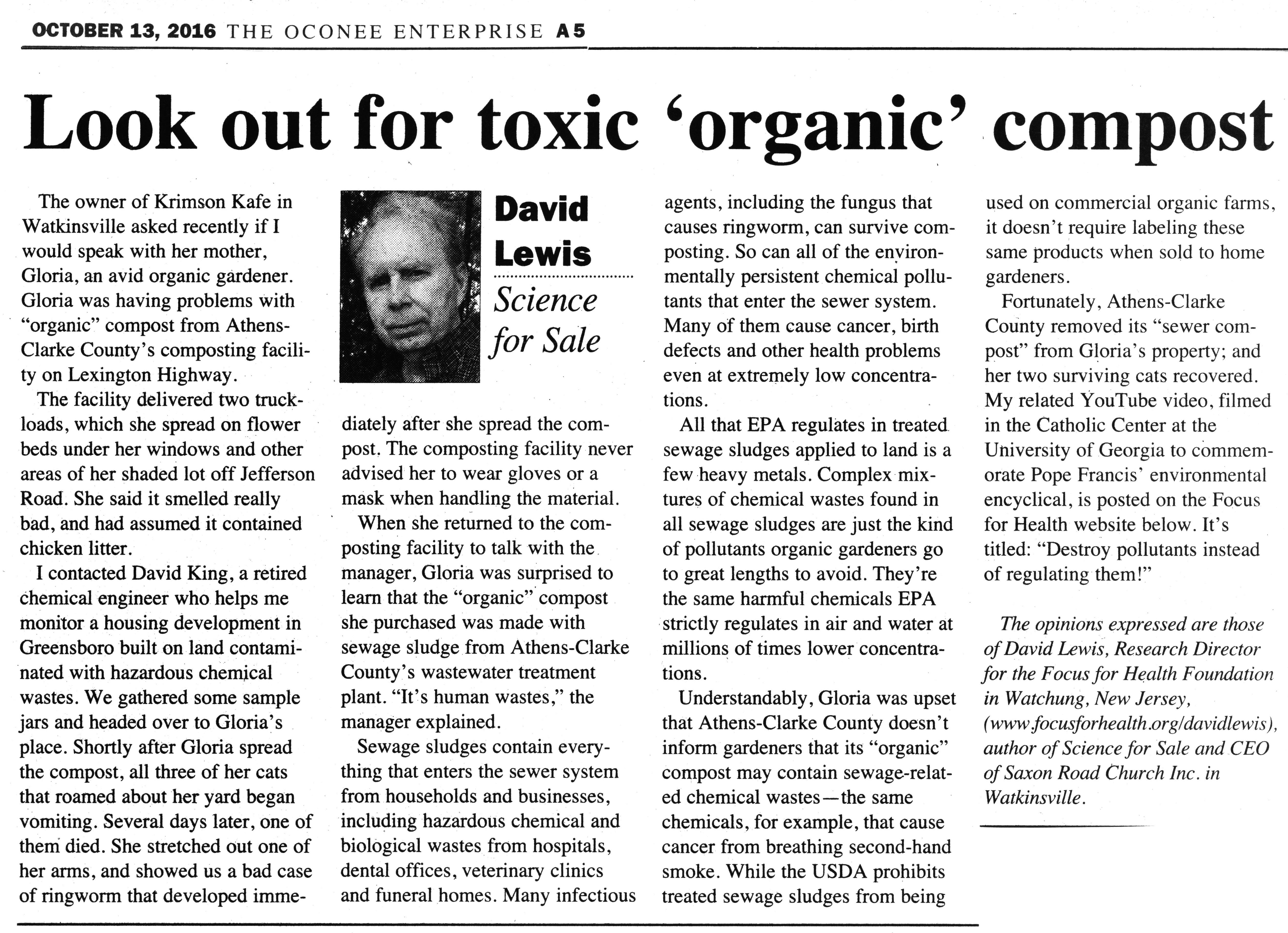The Oconee Enterprise, October 13, 2016:
Dr. David Lewis
The owner of Krimson Kafe in Watkinsville, Georgia asked recently if I would speak with her mother, Gloria, an avid organic gardener. Gloria was having problems with ‘organic’ compost from Athens-Clarke County’s composting facility on Lexington Highway. The facility delivered two truckloads, which she spread on flower beds under her windows and other areas of her shaded lot off Jefferson Road. She said it smelled really bad, and had assumed it contained chicken litter.

I contacted David King, a retired chemical engineer who helps me monitor a housing development in Greensboro built on land contaminated with hazardous chemical wastes. We gathered some sample jars and headed over to Gloria’s place. Shortly after Gloria spread the compost, all three of her cats that roamed about her yard began vomiting. Several days later, one of them died. She stretched out one of her arms, and showed us a bad case of ringworm that developed immediately after she spread the compost. The composting facility never advised her to wear gloves or a mask when handling the material.
When she returned to the composting facility to talk with the manager, Gloria was surprised to learn that the ‘organic’ compost she purchased was made with sewage sludge from Athens-Clarke County’s wastewater treatment plant. “It’s human wastes,” the manager explained.
Sewage sludges contain everything that enters the sewer system from households and businesses, including hazardous chemical and biological wastes from hospitals, dental offices, veterinary clinics and funeral homes. Many infectious agents, including the fungus that causes ringworm, can survive composting. So can all of the environmentally persistent chemical pollutants that enter the sewer system. Many of them cause cancer, birth defects and other health problems even at extremely low concentrations.
All that EPA regulates in treated sewage sludges applied to land is a few heavy metals. Complex mixtures of chemical wastes found in all sewage sludges are just the kind of pollutants organic gardeners go to great lengths to avoid. They’re the same harmful chemicals EPA strictly regulates in air and water at millions of times lower concentrations.
Understandably, Gloria was upset that Athens-Clarke County doesn’t inform gardeners that its ‘organic’ compost may contain sewage-related chemical wastes – the same chemicals, for example, that cause cancer from breathing second-hand smoke. While the USDA prohibits treated sewage sludges from being used on commercial organic farms, it doesn’t require labeling these same products when sold to home gardeners.
Fortunately, Athens-Clarke County removed its ‘sewer compost’ from Gloria’s property; and her two surviving cats recovered. My related YouTube video, filmed in the Catholic Center at the University of Georgia to commemorate Pope Francis’ environmental encyclical, is posted on the Focus for Health website below. It’s titled: “Destroy pollutants instead of regulating them!”


